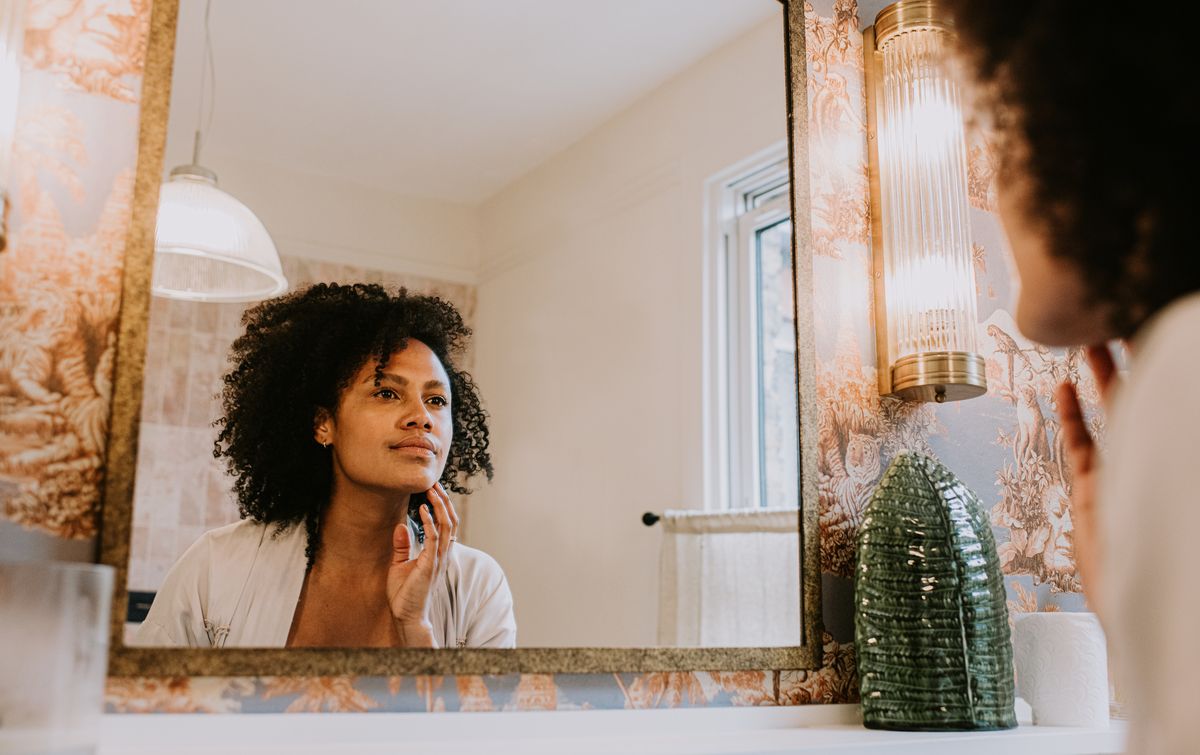One of the most bothersome skin conditions is acne, and almost everyone struggles with it to some degree. Many conditions and behaviors can be developed from having acne—from popping pimples in the mirror to trying every trick in the book to get rid of it—but one condition takes those actions to another level.
Dr. Azza Halim, MD, board-certified multi-specialist physician, Savanna Boda, owner of Savanna Boda Aesthetics and Face Reality ambassador
It’s called acne excoriée, and it can be a serious condition. Here’s what you need to know to keep your skin health.
What Is Acne Excoriée?
If you’ve never heard of it, acne excoriée is a skin condition “when one compulsively is picking, scratching, or squeezing acne or pimples,” leaving scabs, scars, and pigmentation, says board-certified multi-specialist physician, Dr. Azza Halim, MD. More common in adolescent females than males, the condition is usually associated with depression, anxiety, OCD, body dysmorphia, or emotional triggers.
“Pickers’ acne,” as it’s sometimes called, is more common than you might believe. That’s because of underreported data, and also because it’s not a well-understood concept, says Dr. Halim. A 2020 Journal of Psychiatric Research study of a population representative of the US revealed that 3.1 percent of females identified as having a lifetime skin-picking disorder. Savanna Boda, owner of Savanna Boda Aesthetics agrees: “Many people suffer in silence,” she adds.
How To Know You Have Acne Excoriée
It’s developed over time by “repetitive picking at the skin,” says Boda. “People are not born with acne excoriée.” Dr. Halim adds that it’s born out of habit. “Trait disorders, learned behaviors, life stressors—all can be contributing factors,” she says.
Of course, it’s pretty common to pick at your acne, so it can be hard to know when it crosses a line into potentially unhealthy territory. Just remember that it’s never good for your skin, since, according to Dr. Halim, it can lead to infections and scars.
“It is completely normal to pop your pimples once in a while,” explains Boda. “It becomes excoriée when you cannot stop and it becomes an addiction. There is a difference between popping one or two pimples from time to time and spending hours in the mirror picking at your skin and every imperfection.”
If you feel that your skin-picking is getting out of hand, both experts recommend that you seek the help of a medical professional or esthetician who knows the ins and outs of dermatologic skin conditions—not just the basics.
“One should do their research as well as get multiple consultations,” Dr. Halim says. “I have seen many patients go unrecognized, but with a trained eye one can be diagnosed quickly. Once I say to the patient, ‘looks like you have been picking’ they immediately admit to it and agree it’s a habit.”
Can Acne Excoriée Be Treated?
Yes—it’s treated through a combination of self-management, proper cleansing of the skin to prevent infections, therapy, and behavioral modifications. And it might take some time to get through because the psychological part of it can come and go, depending on the person’s life and triggers, notes Dr. Halim. “My best advice for people who suffer with acne excoriée is to remove anything that poses as a trigger, such as a close-up mirror or at-home extraction tools,” says Boda.
Boda also recommends the following guidelines to help you kick the urge: wearing gloves or mittens when possible, keeping your fingernails short, getting a fidget toy, journaling to hold yourself responsible, and icing your skin if you get the urge to pick at it.
Ultimately, you can only heal when you stop picking, says Boda.












